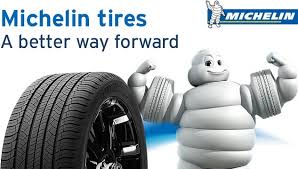Michelin invests in recycled materials aiming at 100% sustainable tires
 Michelin – One of the world’s leading tire manufacturers – says in its press release from February 23, 2021 that it is committed to making automotive tires 100% sustainable by 2050. This is an ambitious but realistic target for the Group, which positions itself as a leader in sustainable mobility.
Michelin – One of the world’s leading tire manufacturers – says in its press release from February 23, 2021 that it is committed to making automotive tires 100% sustainable by 2050. This is an ambitious but realistic target for the Group, which positions itself as a leader in sustainable mobility.
Appearances can be deceiving, the company says. This adage definitely applies to Michelin’s tires, which are high-technology products made of more than 200 components. They’re much more complex than they appear, which means that ensuring that all the tire’s components are sustainable presents a significant challenge.
An exploit well within Michelin’s reach
Though making our tires 100% sustainable is ambitious, it remains realistic. The Group’s materials expertise, along with Michelin’s ability to innovate and develop new technology, offer considerable advantages. Michelin currently has more than 6,000 engineers, researchers, chemists, and developers in seven research and development centers around the world working in more than 350 fields of expertise. Beyond its power of innovation, the company also believes it can make 100% sustainable tires because of the Group’s open innovation strategy based on innovative and trailblazing partnerships.
Strategic partnerships focused on sustainability
Michlin sasy that the Group has always been willing to pool its expertise with that of stakeholders from different fields to accelerate progress and realize its “All-Sustainable” vision. This was the case for its collaborations with Axens and IFP Energies Nouvelles, Pyrowave, Carbios, and recently Enviro.
The Group is already working in various areas such as producing butadiene from biomass (wood waste, rice husks, etc.), recovering carbon black from used tires, recycling polystyrene, etc. All promising avenues that should contribute to Michelin’s success, the company is convinced.
Michelin is going even further…
Michelin is raising standards even higher. The Group is determined to use as few materials as possible in tires while maximizing performance and efficacy. The goal: improve the tire’s ecological footprint and decrease rolling resistance to reduce CO2 emissions. Given that natural rubber remains the tire’s main component, Michelin is also working to make the natural rubber industry eco-friendlier and more beneficial to all its stakeholders. The “All Sustainable” vision that inspires and guides Michelin’s strategy is well on its way!
You can return to the main Market News page, or press the Back button on your browser.

